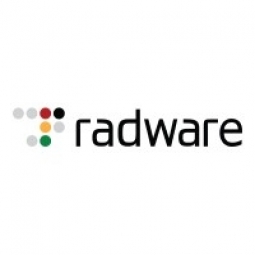Groupama Seguros Uses Radware Solutions to Raise Web Application Performance, Ensure Security and Privacy

Customer Company Size
Large Corporate
Region
- Europe
Country
- Spain
Product
- Radware’s APSolute suite
- AppDirector
- AppXcel
- DefensePro
Tech Stack
- Application delivery controller
- SSL security
- Network security devices
Implementation Scale
- Enterprise-wide Deployment
Impact Metrics
- Customer Satisfaction
- Productivity Improvements
- Digital Expertise
Technology Category
- Cybersecurity & Privacy - Network Security
- Cybersecurity & Privacy - Cloud Security
- Cybersecurity & Privacy - Database Security
Applicable Industries
- Finance & Insurance
Applicable Functions
- Business Operation
Use Cases
- Cybersecurity
Services
- System Integration
- Cloud Planning, Design & Implementation Services
About The Customer
Groupama Seguros is the Spanish subsidiary of Groupama, a worldwide mutual insurance, banking and financial services group that is currently the leader in mutual insurance companies in Europe. With 150 years of history in the Spanish market, Groupama Seguros is highly acclaimed for both its technological innovation and the quality of its products. It caters to a broad clientele by offering life and non-life insurance, savings and a range of banking services. The company’s web applications are used every day by approximately 7,000 employees, partners and customers located in multiple countries.
The Challenge
Groupama Seguros, a leading European insurance firm, needed a geo-dispersed, balanced web platform that would deliver top-rate performance while ensuring communications privacy and protection against attacks. The company’s web applications are used every day by approximately 7,000 employees, partners and customers located in multiple countries. They conduct a number of activities that all require a seamless, fast and reliable connection, 24*7. Local and global visitors processing online transactions need continuous connectivity. They furthermore need to be directed to the most suitable site that will provide optimal service and have a record of their relevant data. In June 2008, Groupama Seguros began searching for ways to provide a better user experience. As the company is responsible for large volumes of confidential data, including customer accounts and personal information, customers required a secure platform to perform their online transactions. This meant that network attacks and unwanted malware such as worms, viruses, reconnaissance, Trojans and VoIP attacks needed to be intercepted.
The Solution
Spanish subsidiary Groupama Seguros deployed core products of Radware’s APSolute suite, AppDirector, AppXcel and DefensePro, which together optimize application delivery and protect against emerging attacks. Groupama Seguros selected Radware’s APSolute suite over its current solution because it provided all the vital security features, was cost-effective and could flexibly integrate with the company’s various services. Radware’s APSolute suite provided Groupama Seguros with a global redirection solution that supports a wide set of application acceleration and security services, enabling complete transaction reliability and fast application and translation response times. In addition, business continuity is maintained while the IP network is protected against existing and potential threats.
Operational Impact

Case Study missing?
Start adding your own!
Register with your work email and create a new case study profile for your business.
Related Case Studies.

Case Study
Real-time In-vehicle Monitoring
The telematic solution provides this vital premium-adjusting information. The solution also helps detect and deter vehicle or trailer theft – as soon as a theft occurs, monitoring personnel can alert the appropriate authorities, providing an exact location.“With more and more insurance companies and major fleet operators interested in monitoring driver behaviour on the grounds of road safety, efficient logistics and costs, the market for this type of device and associated e-business services is growing rapidly within Italy and the rest of Europe,” says Franco.“The insurance companies are especially interested in the pay-per-use and pay-as-you-drive applications while other organisations employ the technology for road user charging.”“One million vehicles in Italy currently carry such devices and forecasts indicate that the European market will increase tenfold by 2014.However, for our technology to work effectively, we needed a highly reliable wireless data network to carry the information between the vehicles and monitoring stations.”

Case Study
Safety First with Folksam
The competitiveness of the car insurance market is driving UBI growth as a means for insurance companies to differentiate their customer propositions as well as improving operational efficiency. An insurance model - usage-based insurance ("UBI") - offers possibilities for insurers to do more efficient market segmentation and accurate risk assessment and pricing. Insurers require an IoT solution for the purpose of data collection and performance analysis

Case Study
Smooth Transition to Energy Savings
The building was equipped with four end-of-life Trane water cooled chillers, located in the basement. Johnson Controls installed four York water cooled centrifugal chillers with unit mounted variable speed drives and a total installed cooling capacity of 6,8 MW. Each chiller has a capacity of 1,6 MW (variable to 1.9MW depending upon condenser water temperatures). Johnson Controls needed to design the equipment in such way that it would fit the dimensional constraints of the existing plant area and plant access route but also the specific performance requirements of the client. Morgan Stanley required the chiller plant to match the building load profile, turn down to match the low load requirement when needed and provide an improvement in the Energy Efficiency Ratio across the entire operating range. Other requirements were a reduction in the chiller noise level to improve the working environment in the plant room and a wide operating envelope coupled with intelligent controls to allow possible variation in both flow rate and temperature. The latter was needed to leverage increased capacity from a reduced number of machines during the different installation phases and allow future enhancement to a variable primary flow system.

Case Study
Automated Pallet Labeling Solution for SPR Packaging
SPR Packaging, an American supplier of packaging solutions, was in search of an automated pallet labeling solution that could meet their immediate and future needs. They aimed to equip their lines with automatic printer applicators, but also required a solution that could interface with their accounting software. The challenge was to find a system that could read a 2D code on pallets at the stretch wrapper, track the pallet, and flag any pallets with unread barcodes for inspection. The pallets could be single or double stacked, and the system needed to be able to differentiate between the two. SPR Packaging sought a system integrator with extensive experience in advanced printing and tracking solutions to provide a complete traceability system.

Case Study
Transforming insurance pricing while improving driver safety
The Internet of Things (IoT) is revolutionizing the car insurance industry on a scale not seen since the introduction of the car itself. For decades, premiums have been calculated using proxy-based risk assessment models and historical data. Today, a growing number of innovative companies such as Quebec-based Industrielle Alliance are moving to usage-based insurance (UBI) models, driven by the advancement of telematics technologies and smart tracking devices.
Case Study
Enhancing Security and Compliance in Remitly's Global Money Transfer Service with Fastly
Remitly, an online remittance service, was faced with the challenge of securing its proprietary global transfer network. The company needed a security solution that could meet PCI requirements and protect customers' sensitive transactions through its mobile application. The solution had to be capable of defending against new and emerging attack types without impacting performance. Remitly also had to deal with irregular traffic patterns, such as a sudden spike in account transfers from a small network segment on the Pacific coastline of South America. The company needed to determine in real time whether such traffic indicated an attack or valid requests. A traditional web application firewall (WAF) would not be able to distinguish this traffic, potentially leading to customer frustration if the IP was blacklisted.






